What Is Hyperlipidemia?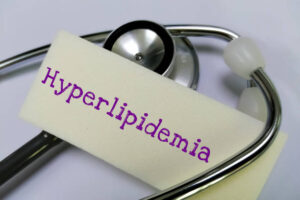
You call it high cholesterol. Your doctor calls it Hyperlipidemia or dyslipidemia. No matter what name you use, it’s a common problem. The term covers several disorders that result in extra fats, also known as lipids, in your blood. You can control some of its causes, but not all of them.
Types of lipids
Your body contains several kinds of lipids. The main types you’ve heard of are probably HDL cholesterol and LDL cholesterol, also known as “good” and “bad” cholesterol.
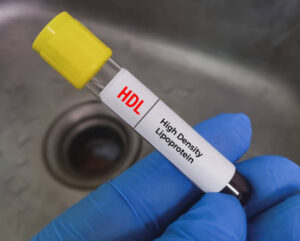
HDL stands for “high-density lipoprotein.” This type carries cholesterol through your blood to your liver, where it’s used to build cells and make hormones, among other things. Your liver gets rid of cholesterol that’s not used. If you don’t have enough HDL, cholesterol builds up in your blood instead of being carried away by your liver.
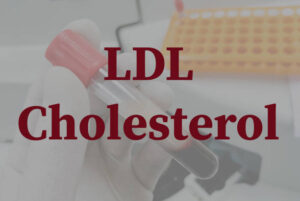
LDL stands for “low-density lipoprotein,” the type known as “bad” cholesterol. It causes buildup in your arteries. Too much of it can lead to heart disease.
Triglycerides are another type of lipid. This is the most common type of fat in your body. They mostly come from foods you eat that are high in fat.
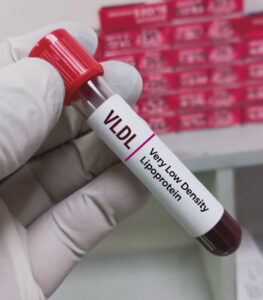
Another type is very low-density lipoprotein, or VLDL. It’s considered “bad” cholesterol because too much raises your risk of heart disease. It’s estimated that 93 million adults in the U.S. have high cholesterol.
Hyperlipidemia is treatable, but it’s often a lifelong condition. You’ll need to watch what you eat and also exercise regularly. You might need to take prescription medication, too.The goal is to lower harmful cholesterol levels. Doing so can reduce your risk of heart disease, heart Attack, stroke, and other problems.
Causes of Hyperlipidemia
Hyperlipidemia has many causes. Some are related to lifestyle, and some are the result of medical issues.
Diet
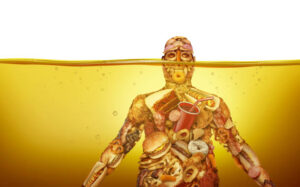
Cholesterol, a waxy substance, is a type of fat your body makes. It can also come from what you eat. Foods that have cholesterol, saturated fat, and trans fats can raise your blood cholesterol level. These include:
- Cheese
- Egg yolks
- Fried and processed foods
- Ice cream
- Pastries
- Red meat
Lifestyle

Your habits also can play a role in hyperlipidemia. You’re at higher risk if you:
- Smoke
- Drink too much alcohol
- Are overweight
- Don’t get enough exercise
- Are stressed
Medical conditions

Some health issues affect your cholesterol levels. They include:
- Diabetes
- Liver disease
- Problems with your pancreas
- Multiple myeloma
- Polycystic ovary syndrome (PCOS)
- Hypothyroidism
- Lupus
- Kidney disease
- Sleep apnea
- HIV
- Primary biliary cholangitis, a problem with your gallbladder
What is mixed hyperlipidemia?

When you have this, you have high triglycerides and LDL, as well as low HDL. It’s an inherited condition, part of a group called “familial hyperlipidemia.” It’s the most common type found among young people who have had heart attacks.
Familial hypercholesterolemia is a genetic condition that causes high LDL only. Another inherited condition that affects your cholesterol is familial hypertriglyceridemia. When you have this, your body produces too much VLDL. As a result, your VLDL and triglyceride levels will be high.
Hyperlipidemia Symptoms

Most people with hyperlipidemia can’t tell that they have it at first. A blood test is the only way to find out if you have it. It’s not something you can feel, but you may notice the effects of it someday. Cholesterol, along with triglycerides and other fats, can build up inside your arteries. This makes the blood vessels narrower and makes it more difficult for blood to get through. Your blood pressure could go up. The narrowing of your arteries could cause several problems:
Coronary artery disease
CAD is the most common form of heart disease in the U.S. When your arteries get clogged, it becomes harder for your heart to get the blood it needs to work correctly. That can lead to a heart attack or heart failure. You may not realize it’s happening until you have chest pain (also called angina) or some other symptoms of a heart attack.
Heart attack
The stuff clogging up your arteries (called plaques) can break off, creating a blood clot. The clot might block the flow of blood in your artery right there, or it might break free and travel down an artery, creating a blockage farther along. If the blockage causes part of your heart to stop getting blood flow, you’re having a heart attack. Symptoms of a heart attack include:
- Chest pain
- Pain that spreads to your jaw, shoulder, arm, back, or neck
- Cold sweat
- Indigestion or nausea
- Shortness of breath
- Dizziness
- Fatigue
- Women may have a sharp pain in the back, neck, or arm.
Stroke
When you have a stroke, a clot travels through your body and blocks blood flow to part of your brain. Symptoms of a stroke include:
- Headache that comes on suddenly and is severe
- Trouble speaking – slurred words, or not being able to speak. You might also have trouble understanding what people are saying.
- Numbness or weakness. This may affect just one side of your body. One side of your mouth may droop when you try to smile.
- Vision problems. Your eyesight might be blurred in one or both eyes.
- Balance issues. You might have trouble walking.
Fatty growths
If you have inherited hyperlipidemia, you might see yellow, fatty deposits under your skin. These are places where cholesterol has built up. If they’re around your eyelids next to your nose, they’re called xanthelasmas. These deposits also can show up in other places on your body, and when they do, they’re called xanthomas. The most common places to get them are your elbows, knees, other joints, hands, feet, and butt.
Hyperlipidemia Diagnosis

To diagnose hyperlipidemia, your health care provider will order a test that checks the levels of cholesterol and triglycerides in your blood. Names for this test include lipid panel, lipid test, lipoprotein panel, and lipid profile. Your doctor should check your lipid levels regularly.
Lipid panel
The results of this test show the levels of LDL Cholesterol: The “bad” cholesterol that builds up inside your arteries.
Role of homeopathy in hyperlipidemia

There is a possibility to control and treat the hyperlipidemia with the help of sound knowledge of materia medica and Repertory because homeopathy believes in the patient not in a disease. Our literature is full of information about this clinical condition and related information. In clinical practice most of the time we use to prefer constitutional remedy along with organ remedies to control hyperlipidemia and most of the time works wonder. Only the classical approach is not fit for this case. because of the paucity of symptoms and most of these cases required several remedies (layered prescribing) in a single case.
Diet and Exercise in the Management of Hyperlipidemia

Dietary factors that influence lipid levels include modification of nutritional components, consumption of specific foods, use of food additives and supplements, and major dietary approaches. The most beneficial changes result from reducing intake of saturated and trans fats; increasing intake of polyunsaturated and monounsaturated fats; fortifying foods with plant stanols or sterols; iso calorically adding tree nuts to the diet; consuming one or two alcoholic drinks per day; and adopting a Portfolio, Mediterranean, low-carbohydrate, or low-fat diet. Smaller but still beneficial effects result from reducing intake of dietary cholesterol, increasing intake of soluble fiber and soy protein, and eating fatty marine fish or taking marine-derived omega-3 fatty acid supplements. Red yeast rice supplements have effects similar to those of statin medications and are better tolerated in some patients. Regular aerobic exercise has beneficial effects on lipid levels, particularly if performed for at least 120 minutes per week. Brief physician counseling will have relatively small effects on unselected patients, so efforts should be concentrated on patients who are motivated and ready to make lifestyle changes.
======================================================================
Book your appointment today for treatment and medication at




